October 2022 FloridAgriculture eNewsletter
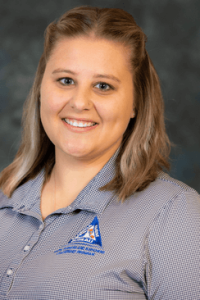 Jennifer Swain
Jennifer Swain
YF&R State Leadership Group, District 6
Jennifer Swain’s life has been intertwined in numerous areas of agriculture. Surrounded by pecan orchards, cotton and peanut fields, Swain’s life first began in Alabama where her father worked in a carpet factory, and later, a plant nursery.
Because of her father’s involvement in agriculture, Swain was introduced to other areas of the industry such as watermelon, potato, sugar cane, citrus, and cattle. While she was still young, Swain and her parents moved back to their roots in Sebring where her grandfather had a citrus grove and was involved in the industry for nearly 40 years.
“I have fond memories of riding through the groves with my grandfather, learning to identify different citrus varieties, pests and diseases,” said Swain. “This family tradition of agricultural work sparked a lifelong love affair with the industry for me.”
In addition to her full time job as the Geographic Information System (GIS) Coordinator for Lykes Bros Inc., Swain is a first generation rancher and currently owns and operates her own beef cattle operation, Crimson and Lace LLC. Established in 2019, Swain’s long-term goal is to grow her ranch to be self-sustainable and serve as her full time job.
Swain’s involvement in Florida Farm Bureau began after a Highlands County Farm Bureau member shared his story and passion for the organization. She knew she wanted to be involved after hearing about the support Florida Farm Bureau offers farmers and ranchers across the state.
One of Swain’s favorite events she coordinates within her county is “Taste of the Heartland”. Held in the spring, this event coincides with the Avon Park Lake Farmers Market and is used to educate the community about different commodities grown locally. They reached out to other organizations and businesses like Highlands County Citrus Growers Association, Sutton Milk, local tractor dealerships and the Highlands County AgVenture program for support and donations.
“Bringing awareness to agriculture both publicly and legislatively has made a lasting impact on me,” said Swain.
As the District 6 representative of the Young Farmers and Ranchers Leadership Group, Swain has enjoyed networking with other members and participating in various professional development events.
“Above all else, I love knowing that I have a voice to share my passion with others, including legislators, who can help make a difference.”
Agriculture is used to its share of challenges, Swain stresses the importance of resilience. From regulatory issues to pests and diseases and most recently a natural disaster, she knows firsthand how important it is to adapt in order to survive.
“I’m a first-generation rancher, and my passion for this industry has always been rooted in my heart. When you’re proud of what you do, you’ll be better equipped to overcome any obstacles that come your way.”

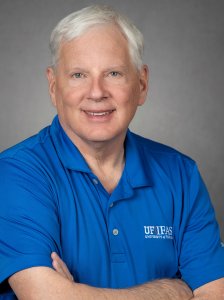
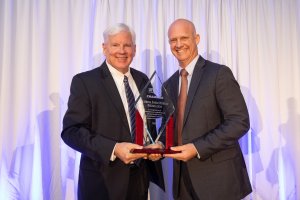
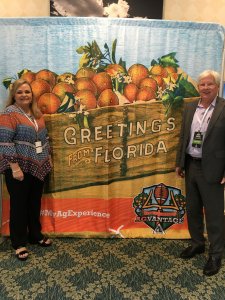
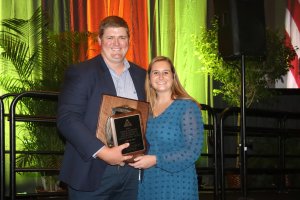
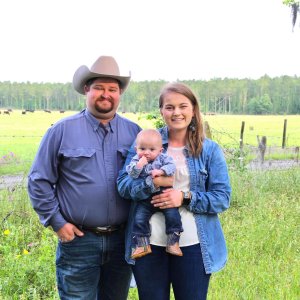 Matt and Kayla Gonzales are first generation ranchers with a dream to leave a legacy for their children. The two got their first taste of agriculture when they joined FFA in high school, which is also how they met. As their love for agriculture (and each other) grew, they decided to attend Abraham Baldwin Agricultural College in Tifton, Ga. Matt received his bachelor of science in diversified agriculture. After finishing her associates in animal science at ABAC, Kayla received her bachelor of science in animal science with a focus on animal food production from the University of Florida. Kayla plans to finish her masters in agronomy in the spring of 2023.
Matt and Kayla Gonzales are first generation ranchers with a dream to leave a legacy for their children. The two got their first taste of agriculture when they joined FFA in high school, which is also how they met. As their love for agriculture (and each other) grew, they decided to attend Abraham Baldwin Agricultural College in Tifton, Ga. Matt received his bachelor of science in diversified agriculture. After finishing her associates in animal science at ABAC, Kayla received her bachelor of science in animal science with a focus on animal food production from the University of Florida. Kayla plans to finish her masters in agronomy in the spring of 2023.
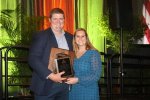
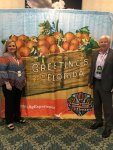
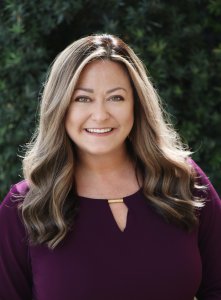


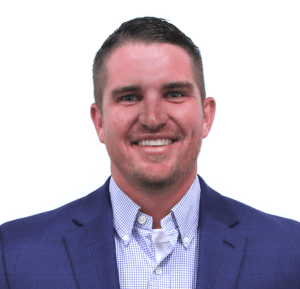 Clay Cooper
Clay Cooper